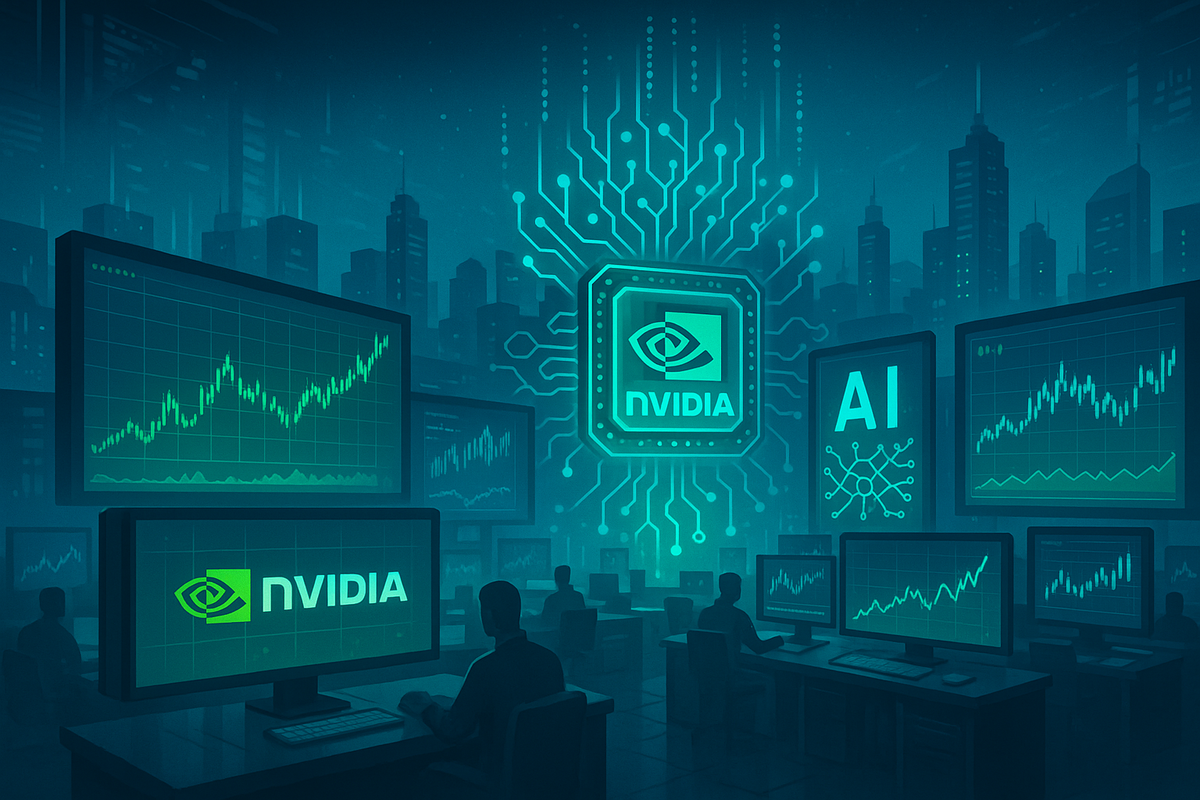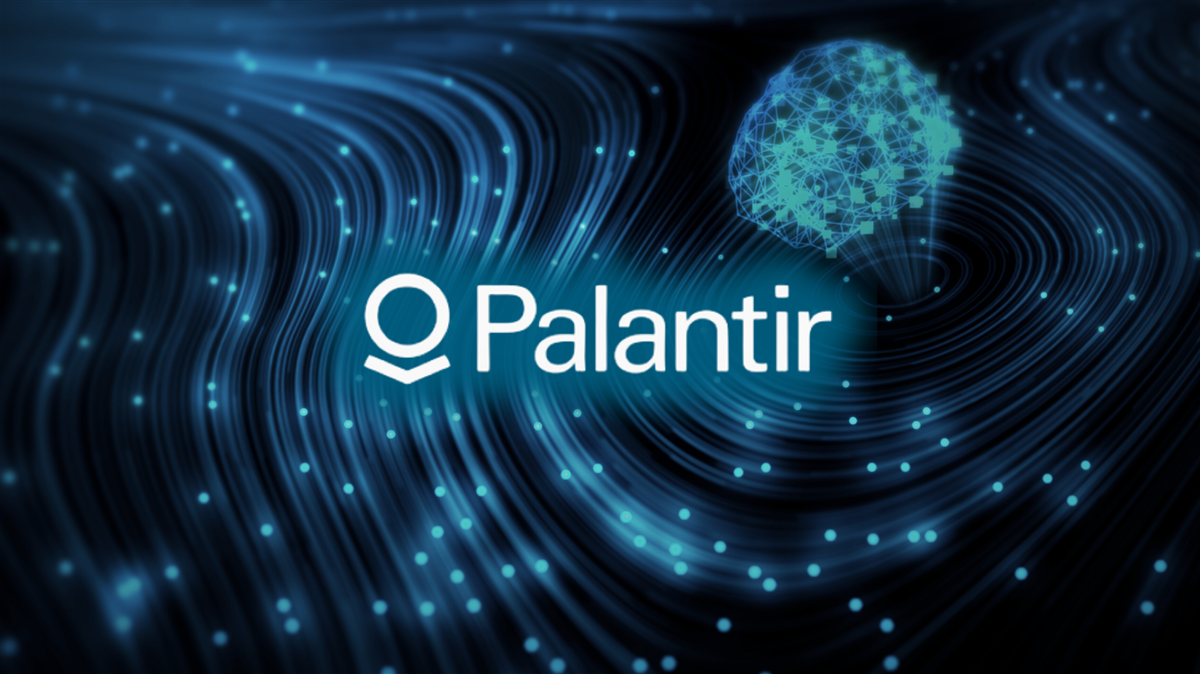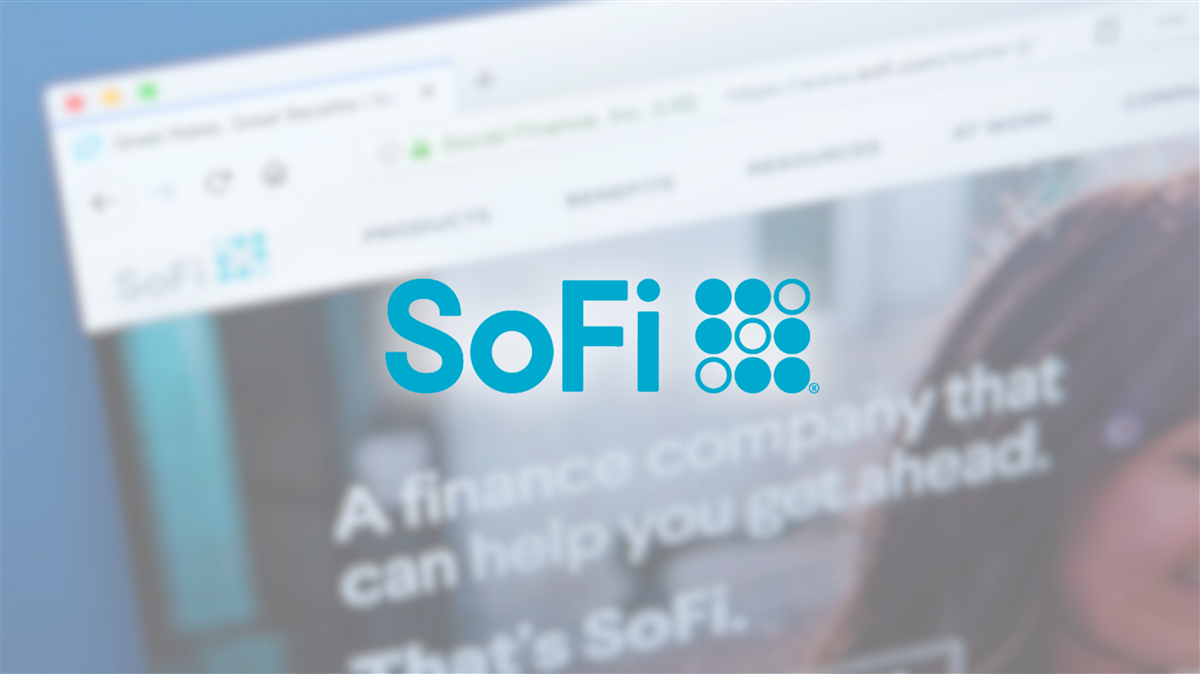Financial News
AI Dominance: Nvidia Leads as Artificial Intelligence Continues to Drive Stock Market Growth

The global stock market is currently experiencing a profound transformation, largely driven by the relentless advancements and widespread adoption of artificial intelligence. This technological revolution is not merely an incremental shift but a paradigm-altering force, poised to inject trillions of dollars into the market and fundamentally reshape investment strategies, market valuations, and trading mechanisms. At the epicenter of this seismic shift stands Nvidia (NASDAQ: NVDA), whose cutting-edge Graphics Processing Units (GPUs) and robust software ecosystem have become the indispensable backbone of the AI boom, propelling the company to unprecedented heights and solidifying its position as a market leader.
The immediate implications of this AI-driven surge are multifaceted. While it promises unparalleled efficiency, the creation of new revenue streams, and a re-evaluation of how public companies are valued, it also introduces elements of market volatility and concentration. Investors are grappling with both immense opportunities and significant risks, as the market grapples with the sustainability of current valuations and the potential for an "AI bubble." The ongoing debate among market analysts underscores the unprecedented nature of this period, with some drawing parallels to historical market booms while others emphasize the unique, foundational impact of AI.
The AI Tsunami: How Artificial Intelligence is Redefining Market Dynamics
The current surge in the stock market is inextricably linked to the rapid evolution and deployment of artificial intelligence. AI is not just a buzzword; it's a powerful engine driving productivity gains, cost reductions, and the creation of entirely new business models across diverse industries. Morgan Stanley projects that AI could add between $13 trillion and $16 trillion in value to the stock market, potentially boosting the S&P 500's market capitalization by as much as 29%. This staggering forecast highlights the sheer scale of AI's potential impact.
Nvidia's role in this narrative is nothing short of pivotal. The company's GPUs are the computational workhorses behind virtually every major AI application, from large language models to complex data analytics. This critical infrastructure role has propelled Nvidia's market value past $4 trillion in 2025, making it the largest listed U.S. company by market capitalization, surpassing even Microsoft (NASDAQ: MSFT). The demand for Nvidia's AI chips, including its newest Blackwell architecture, continues to outpace supply, with preorders booked out for up to 12 months. This insatiable demand underscores the foundational importance of Nvidia's technology to the ongoing AI revolution. Furthermore, Nvidia's proprietary CUDA platform, a decades-old software ecosystem, has created a significant competitive barrier, solidifying its dominance in the AI hardware market and making it incredibly difficult for competitors to catch up.
The AI Divide: Winners and Losers in the New Market Landscape
The AI revolution is creating a clear divide in the market, with some companies poised for exponential growth and others facing significant disruption.
The Winners:
- Nvidia (NASDAQ: NVDA): As the undisputed leader in AI hardware, Nvidia is the most prominent beneficiary. Its data center business reported record quarterly revenue of $26.3 billion, a 154% increase year-over-year. The company's stock has seen a more than 2,000% increase over the past five years, reflecting its indispensable role in the AI ecosystem.
- Cloud Computing Giants: Companies like Amazon (NASDAQ: AMZN) with Amazon Web Services (AWS), Microsoft (NASDAQ: MSFT) with Azure, and Alphabet (NASDAQ: GOOGL) with Google Cloud are experiencing massive demand for their cloud infrastructure, which provides the computational power and storage necessary for AI development and deployment. These companies are investing hundreds of billions of dollars in AI infrastructure, further solidifying their positions.
- AI Software and Services Providers: Companies developing specialized AI software, platforms, and services are also seeing significant growth. This includes firms focused on machine learning operations (MLOps), data labeling, and AI-powered analytics.
- Early Adopters and Innovators: Businesses across various sectors that are successfully integrating AI into their operations to enhance efficiency, create new products, or improve customer experiences are gaining a significant competitive advantage. This includes companies in healthcare, finance, and manufacturing that are leveraging AI for drug discovery, fraud detection, and predictive maintenance.
The Losers (or those facing significant challenges):
- Companies Slow to Adopt AI: Businesses that fail to embrace AI and integrate it into their core operations risk falling behind competitors. This could lead to reduced efficiency, higher costs, and a loss of market share.
- Traditional Software Companies: Some traditional software companies, particularly those offering solutions that can be automated or replaced by AI, are facing pressure. The rise of AI could disrupt or even "consume a portion of the software sector itself," forcing these companies to rapidly innovate and adapt.
- Businesses with High Labor Costs and Repetitive Tasks: Industries heavily reliant on manual labor and repetitive tasks are vulnerable to AI-driven automation. While this can lead to increased efficiency, it also poses challenges for workforce adaptation and retraining.
- Companies Lacking Strategic R&D Investment: Businesses that do not invest strategically in AI research and development risk being left behind in the innovation race. The rapid pace of AI advancement demands continuous investment and adaptation.
Industry Impact and Broader Implications: A New Economic Frontier
The AI revolution extends far beyond the tech sector, creating ripple effects across the entire global economy. This event fits into broader industry trends of digital transformation and automation, but with an unprecedented scale and speed.
The potential ripple effects on competitors and partners are immense. Companies that partner with AI leaders like Nvidia or integrate AI solutions from cloud providers stand to benefit significantly. Conversely, competitors that fail to keep pace risk obsolescence. For instance, chip manufacturers that cannot compete with Nvidia's technological prowess and ecosystem face an uphill battle. The financial sector, in particular, is undergoing a profound transformation, with AI-driven algorithmic trading now accounting for approximately 60-75% of total trading volume in the U.S. stock market. This has led to increased efficiency and liquidity but also contributes to market volatility.
Regulatory and policy implications are also emerging as a critical area of focus. Governments worldwide are grappling with how to regulate AI to ensure ethical development, data privacy, and prevent market monopolization. Discussions around AI governance, intellectual property, and the future of work are gaining momentum, and potential regulations could significantly impact the industry's trajectory. Historically, technological revolutions, from the industrial revolution to the internet boom, have always brought about similar periods of rapid growth, market speculation, and subsequent regulatory adjustments. However, the pervasive nature of AI and its ability to impact virtually every aspect of human endeavor makes this era unique.
What Comes Next: Navigating the AI-Powered Future
The short-term and long-term possibilities stemming from AI's dominance are vast and varied. In the short term, continued volatility in AI stocks is expected as the market attempts to price in the uncertain but immense payoff of AI investments. Investors should anticipate further significant earnings reports from key players like Nvidia, which will continue to act as market-moving events.
In the long term, we can expect to see a continued acceleration of AI integration across all industries. This will necessitate strategic pivots and adaptations for many businesses, focusing on upskilling workforces, re-evaluating business models, and investing in AI-powered solutions. New market opportunities will emerge in areas such as specialized AI hardware beyond GPUs, AI ethics and governance consulting, and AI-powered solutions for niche industries. Challenges will include managing the ethical implications of AI, addressing potential job displacement, and ensuring equitable access to AI technologies. Potential scenarios range from a sustained, transformative growth period driven by AI's productivity enhancements to a more volatile period marked by market corrections if the promised returns on AI investments do not materialize as quickly as anticipated.
Conclusion: The Enduring Impact of the AI Revolution
The current AI-driven surge in the stock market, spearheaded by companies like Nvidia, represents a pivotal moment in economic history. The key takeaways are clear: AI is not a fleeting trend but a fundamental force reshaping industries, creating new revenue streams, and driving unprecedented market growth. Nvidia's dominance in the AI hardware space underscores its critical role in this transformation, making its performance a bellwether for the broader AI market.
Moving forward, the market will continue to be influenced by the pace of AI innovation, the sustainability of AI spending, and the evolving regulatory landscape. Investors should watch for several key indicators in the coming months: the continued performance of AI infrastructure providers, the successful integration of AI into diverse industries, and the development of clear regulatory frameworks. While the potential for an "AI bubble" remains a topic of debate, the underlying technological advancements and their profound economic impact suggest that AI's influence on the market is here to stay, demanding a strategic and informed approach from all market participants. The AI revolution is not just about technology; it's about a fundamental reordering of economic power and opportunity.
More News
View More





Quotes delayed at least 20 minutes.
By accessing this page, you agree to the following
Privacy Policy and Terms Of Service.



